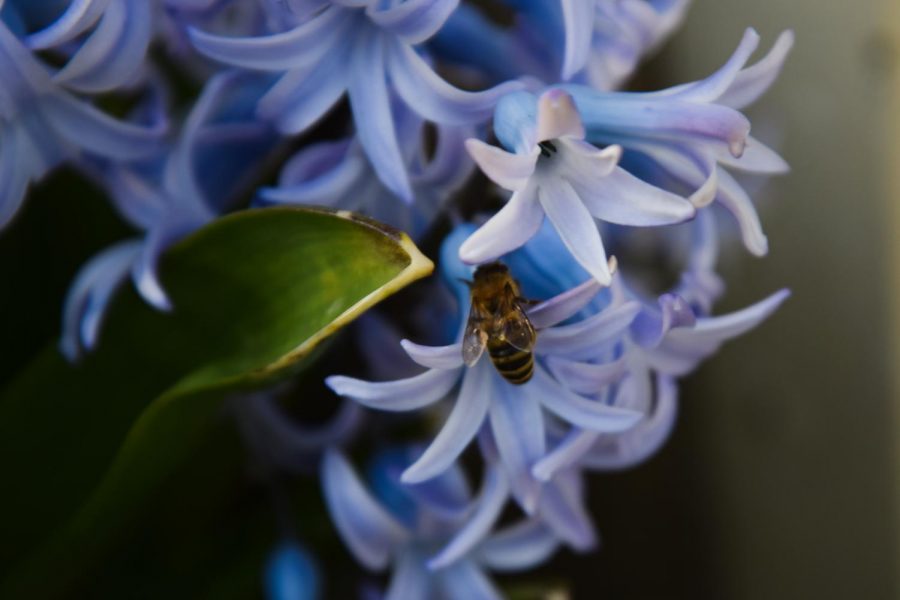Feed funding into fungus research to save the bees
WSU researchers need more resources to develop cure for Varroa mite parasites, requires donations
JOSEPH GARDNER | THE DAILY EVERGREEN
Bees have been undergoing population decline for years, one of the factors being an incurable lethal parasite called Varroa mites. New research has found fungi may hold the solution, but requires time and adequate funding.
April 2, 2019
A world without honey bees would mean a world scarce of flowers, fruit and trees.
WSU researcher Jennifer Han is part of a research team dedicated to preventing that dystopia. Their work ensures a future with a thriving honey bee population, but only if they get the funding they need to do it.
“Ask any beekeeper and most will say that their No. 1 problem are Varroa mites,” Han said.
The Varroa mite is an invasive parasite that, for years, has gradually invaded honey bee colonies across the country and devastated bee populations. Once they infest a hive, they attach to adults and larvae, slowly killing the individual and eventually decimating the entire colony.
The exact cause for the decline in bee population was a mystery for years, but even more mysterious is how to treat these parasites. Varroa mites are a pest-resistant to most chemicals and the chemicals that do kill them are also lethal to honey bees. Luckily, an observation made several years ago has directed researchers to a potential solution.
“Ten years ago, a collaborator [of ours] noticed that his bees flourished in a mushroom field he was harvesting,” Han said.
On a fungi diet, bees appeared healthier. Similar to the difference in the health of a person who eats only candy bars compared to someone who eats a balanced meal every day. The honeybees fed a fungal diet fared much better than those of exclusively sugar-fed colonies. It is possible that by changing the diets of farm-raised bees, from a diet of sugar water to a diet of more nutritious fungi, the overall health of honey bees could be improved. But this can’t be proven without adequate research.
Despite improving honey bee health, a fungal diet alone won’t protect the fragile honey bee populations from Varroa mites. But the WSU research team has a plan to save these essential creatures. Since 2016, they have been breeding different kinds of fungi with the hope that they can someday breed a special fungus that can kill off Varroa mites without harming the honey bees. Yet that solution may be a long way off.
With no treatments available for this parasite, WSU’s team has the most promising, leading researchers in this field, but they still face issues. Most fungi cannot survive in the warm temperatures of honeybee hives, so not only does this research team need to breed mite-killing fungi, they need it to be a heat-tolerant one as well.
The research done on this subject is critical to keeping the world’s most fruitful insect healthy, but it cannot be done without the funding required to pursue this goal. The task may take time, but the more resources available to them, the more they’ll be able to accomplish in a shorter time.
The Honeybee and Fungi (Mushroom) Research Fund are currently at less than a third of its campaign goal of $15 million. To recover from this massive loss in bee populations as soon as possible, more must be given to this worthwhile cause.






















